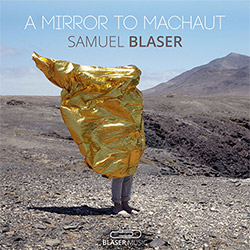
The Consort in Motion ensemble of Samuel Blaser on trombone, Joachim Badenhorst on bass clarinet, clarinet & tenor saxophone, Drew Gress on double bass, Russ Lossing on piano, Rhodes & Wulitzer and Gerry Hemingway on drums & percussion adapt the late medieval court music of Guillaume de Machaut and Guillaume Dufay into arrangements for modern creative improvisation.
In Stock
Quantity in Basket: None
Log In to use our Wish List
Shipping Weight: 3.00 units
EU & UK Customers:
Discogs.com can handle your VAT payments
So please order through Discogs
Sample The Album:
Samuel Blaser-trombone
Joachim Badenhorst-bass clarinet, clarinet. tenor saxophone
Drew Gress-doublebass
Russ Lossing-piano, Rhodes, Wulitzer
Gerry Hemingway-drums, percussion
Click an artist name above to see in-stock items for that artist.
UPC: 774355160428
Label: Songlines
Catalog ID: SGL 1604-2
Squidco Product Code: 32195
Format: CD
Condition: New
Released: 2013
Country: Canada
Packaging: Cardboard Gatefold
Recorded at Studio de Meudon in France on February 19th and 20th, 2013 by Jean-Paul Gonnod.
"Swiss trombonist Samuel Blaser's star is rising internationally. In his early 30s, he has two acclaimed releases on Hatology with his current quartet, a new quintet on Fresh Sound co-led with bassist Michael Bates, a duo with drummer Pierre Favre, and a solo trombone record, among other projects. Though living in Berlin he is well known on the New York scene. Consort in Motion began in New York in December 2010 as a recording project for the Swiss label Kind of Blue. That record gained many raves, but Blaser was interested in touring. After Paul Motian died he decided to modify the personnel, retaining Russ Lossing on piano (plus, this time, Rhodes and Wurlitzer), bringing in Gerry Hemingway on drums and percussion and Drew Gress on bass, and adding a 2nd horn, Belgian reed player Joachim Badenhorst (co-leader of the trio Equilibrium, with two releases on Songlines). The concept remains that of blending early music forms and jazz improvisation, but where the first record focused on the early Italian baroque, this one finds inspiration in the the sophisticated court musics of Machaut and Dufay.
Blaser's conservatory studies involved both classical music and jazz, and he was already familiar with the late medieval era. What interests him is how its formal elements - modes, melodies, structural and rhythmic devices, etc. - can be freely adapted in a creative music context into new pieces that require improvisers to come up with 'solutions' to the stylistic and expressive challenges they pose. But he is also quite fascinated in early music as a performer, and plays sackbut in a duo with Jay Elfenbein. This tension between homage and transformation, a continuum from rather faithful transcription to free arrangement to recomposition, gives A Mirror to Machaut both expectation and surprise - what will the next piece be like? It may sound nothing like the work it is based on, yet somehow a continuity of moods from track to track is established. Blaser's notes offer pointers on what he's up to, and Todd McComb of medieval.org provides a grand overview, but pleasure is solidly grounded first of all in the listening experience itself. Blaser comments: "A Mirror to Machaut is a vision, a suggestion of how Machaut's and Dufay's music can be used in improvised music. I might do something completely different tomorrow but this album reflects my current interests: from early music to contemporary music passing by improvised music, jazz and various grooves. However I don't think I've forged any kind of new hybrid music here. I think the music sounds like mine but spiced with medieval colors."
"I like to compose music that it's possible to play with: explore the form, extend the speed of a melody, create somehow complex forms with 'easy' material...The methods used to create jazz pieces on A Mirror to Machaut are very similar to what I did in the first album. However, I attempted to include more medieval elements such as isorhythms (Cantus planus, Hymn and Linea), hemiolas (Saltarello and Hymn), and simple counterpoint (Hymn). Emotionally speaking I think we were able to re-create the world of Machaut's love songs with tunes like Bohemia, Hymn, Douce Dame, De Fortune and Complainte. Those melodies are extremely beautiful and some of them were easy to put in a jazz context...On Colors we were able to almost get a Milesian vibe... I also attach a lot of importance to the search for sounds, space, and interactions between the musicians... I do find a lot of similarities between the two worlds: the ways of shaping the music and of phrasing lines are almost identical. The variety of articulations, dynamics, rhythmical cells, the delicacy and the lightness in early music is incredibly rich and can easily be translated to improvised music."
With an expanded instrumental palette, the textures and colours are often scintillating, though with all the freedom and exuberance of the playing there is still a sense of reserve, elegance, at times almost of austerity. Blaser treats medieval music not as exotic fusion fodder but as a comprehensible world that casts its long spell across the centuries. He was aided in the final shaping of the arrangements by producer Benoît Delbecq, who was also hands-on during the recording and post-production process and obtained superb sound quality. (Not co-incidentally they are both members of clarinetist's François Houle's 5+1 Ensemble on Songlines.)"-Songlines
Artist Biographies
• Show Bio for Samuel Blaser "[...] Born and raised in La Chaux-de-Fonds, Switzerland - a lesser-known but no less significant jazz metropolis which was, for a time, home to expatriate Americans Sidney Bechet and Kenny Clarke, as well as Swiss jazz trombonist Raymond Droz - Blaser has also spent considerable time living in New York City and currently resides in Berlin; truly an international musician, then, in clear defiance of boundaries cultural, musical and stylistic. Beginning trombone lessons at the age of 9, he "couldn't go past third position and had to have a trolley to carry trombone because it was too heavy," says Blaser. Still, with plenty of music in the Blaser household, where he was the middle of three children - ranging from Swiss folk music to American R&B and jazz - Blaser progressed quickly, entering the local conservatory at 14 and graduating seven years later in 2002 after receiving a number of awards in both the jazz and classical spheres, including the 2000 Benny Golson Prize. Continuing private studies, Blaser began a number of significant associations, including the heralded Vienna Art Orchestra and European Radio Big Band, leading to a Fulbright scholarship which enabled him to study in the United States at the Purchase College Conservatory of Music, going on to win the J.J. Johnson Prize, as well as both the Public Prize and Jury's Favorite Player awards at the 2006 Fribourg Jazz Festival. All of these diverse accomplishments have ultimately - and inevitably - led to Blaser finding a personal nexus where disparate elements like Indian Tihi and Wagnerian opera meet. Blaser's impressive improvisational élan is predicated on instrumental mastery that is nothing more than the means to very musical ends. Together with his equally unfettered quartet, Blaser continues to expand the purview of jazz, redefining it in the new millennium as it enters its second century of existence. Beyond Blaser's ability to combine knotty compositional form with incendiary improvisational prowess in the context of his own music, his unfettered yet ever-collaborative approach has resulted in a number of significant associations, among them his ongoing work with Swiss percussion legend Pierre Favre; a much-lauded duo with pianist Malcolm Braff; touring in 2012 as a member of François Houle's recent 5+1 group, and heard on the French Canadian clarinetist's Genera (Songlines, 2012); and recording/performing with Berlin-based Canadian saxophonist Peter van Huffel's HuffLiGNoN group with singer Sophie Tassignon. Blaser has also shared the stage with artists including trombonist David Taylor, bassist Michael Blake, drummer John Hollenbeck and pianist Hal Galper. It's no surprise that Rene Laanen of USA Trombone Online has called Blaser" one of today´s finest trombonists." 2013 will see Blaser touring with two new trios: one that, in addition to Marc Ducret, will also feature Danish drummer Peter Bruun; and another featuring French pianist Benoit Delbecq and American drummer Gerry Hemingway. Equally important, Blaser will also reunite his Consort in Motion (Kind of Blue, 2011) Quartet with pianist Russ Lossing, Belgian reed player Joachim Badenhorst, bassist Drew Gress and Hemingway, who replaces the sadly deceased Paul Motian. That record - Blaser's first and only to include a pianist, marrying the seemingly disparate elements of Renaissance and Baroque period composition with more open-ended jazz improvisation - was praised by All About Jazz's Troy Collins as " Fearlessly modern, yet respectfully regal." Collins continues, asserting that "Blaser's adventurous arrangements and reinterpretations offer the best of both worlds, enriching the raw impetuousness of avant-garde jazz with the proven sophistication of ageless classical forms. Consort in Motion is a high-water mark in the enduring lineage of the Third Stream, and all the more inspiring for the focus of its vision." Meanwhile, with the release of As the Sea - like Boundless, a live recording but one culled from a single performance - Blaser reaps the rewards of greater trust and personal camaraderie built with Ducret, Oester and Cleaver through additional touring, following the release of their debut recording. "The music is quite different from the first record," says Blaser, "because things are more written. It's a little more complex rhythmically, too. But it's crazy, because I can play anything - a single note, even - and everybody will move with me. It's pretty intense." Between recording and touring with his own groups and collaborating in other leaders' ensembles, Blaser's career continues an upward trajectory that seems to have no end in sight. "The world of music fascinates me to no end, and I´m determined to take one journey after another with my instrument and work," says Blaser. "It´s all about discovery and communicating new ideas. Believe me, I´m proof that a shiny trombone can send a message right to your heart and change your life." " ^ Hide Bio for Samuel Blaser • Show Bio for Joachim Badenhorst "Joachim Badenhorst (°1981 Antwerp) has been active in the experimental and improvised music scene in Europe and abroad for the past 15 years. Following his master degree in jazz studies at the Royal Conservatory of the Hague, he has since divided his time between Belgium and cities in the US and Europe, collaborating and recording with jazz and experimental music ensembles and artists, such as Han Bennink, Tony Malaby and Noël Akchoté while incessantly exploring the visceral elements of sound. His output ranges from solo improvisation to leading large formations, such as his own Carate Urio Orchestra. Badenhorst is artistically interested in integrating ideas from various different art medias into his musical compositions. He also takes deep interest in revealing the inherent relation between contemporary and traditional musics, having collaborated with traditional musicians from Turkey and Japan, and toured in China with reinterpreted traditional Chinese music. In recent years, Badenhorst is contemplating the evanescent site specificity of sound as well as the relation between space and sound. In recent years, his work has taken a deeper focus on composition, namely that of computerbased composition and processing. Through continual research and experiment, he delves into a reimagination of the boundaries between improvisation and composition, of abstract sound explorations and harmonic passage, and continues to attempt at a personal aesthetic language that interact with spaces and engage with different audiences. Badenhorst appears on over 50 cd's on over 10 record labels. In 2012, he launched his own label KLEIN, as a creative platform to initiate collaborations, experiment and play with unconventional design, and as an outlet for fringe musical projects. Since 2010 Badenhorst has been developing his solo programme consisting of improvisations and compositions for solo acoustic and electroacoustic wind instruments." ^ Hide Bio for Joachim Badenhorst • Show Bio for Drew Gress "Drew Gress (born November 20, 1959) is an American jazz double-bassist and composer born in Trenton, New Jersey, raised in the Philadelphia area, and currently based in New York City. Biography Gress became interested in jazz and the double bass while a teenager, joining the Pennsbury Concert Jazz Band, a nationally-prominent high school jazz ensemble, in 1975, spending two years as bassist and arranger for the group. His interest in composing original material for large ensembles, such as those of Johnny Richards, Billy May, and Pat Williams, led him to Baltimore's Towson State University in 1977, where he studied composition and counterpoint with Hank Levy, known for his work with Don Ellis and Stan Kenton. While at Towson, Gress established a playing relationship with saxophonist Ellery Eskelin, with whom he cofounded Joint Venture with Paul Smoker and Phil Haynes. They released three albums on Enja Records between 1987 and 1994. During the 1980s in the Baltimore/Washington DC area, he played with Sonny Stitt, Clifford Jordan, Albert Dailey, Mose Allison, Zoot Sims, Cab Calloway, Buddy Hackett, Phyllis Diller, and pianist Marc Copland, with whom he still plays today. He also served on the faculties of the Peabody Conservatory, Towson State University, and the Baltimore School for the Arts. He formed a quartet, Tekke, in 1989 with David Kane, Glenn Cashman, and Michael Smith. In 1997, he cofounded the cooperative improvising trio Paraphrase with saxophonist/composer Tim Berne and drummer Tom Rainey. Together, they pursued a compositional approach to free improvisational practice. They recorded three live albums together and toured extensively. In 1998, he released his first album as leader, Heyday, with his band Jagged Sky (featuring David Binney, Ben Monder, and Kenny Wollesen). 2001 saw the release of Spin & Drift with Uri Caine, Berne, and Rainey, in which he played pedal steel guitar for the first time. Earlier in the 1990s, he served tenures as artist in residence at University of Colorado-Boulder and at Russia's St. Petersburg Conservatory. Since 1992, Gress has maintained an extensive touring schedule, traveling to Europe, Asia, and South America. Those with whom he has and continues to work include Tim Berne, Ravi Coltrane, Uri Caine, John Hollenbeck, Fred Hersch, Marc Copland, Don Byron, Steve Coleman, Dave Douglas, Jack DeJohnette, John Surman, Ray Anderson, Erik Friedlander, Kenny Werner, Bill Carrothers, Ralph Alessi, Tony Malaby, Steve Lehman, and Edsel Gomez. To date, he has appeared on over 140 recordings, 4 of which have received Grammy nominations. Gress' own ensembles have toured Europe four times since 2002, in addition to isolated festival appearances in Italy and Portugal. In 2004, the UK's BBC Radio and London's Guardian selected his quartet's live radio broadcast as Jazz Concert of the Year. Composition awards include an NEA grant (1990), funding from Meet the Composer (2003), a Chamber Music America New Works Grant (2005), a CMA French-American Exchange Grant (2007), and an Encore Grant from that same organization (2008). He continues to compose for larger groups and has begun experimenting with virtual synthesizers." ^ Hide Bio for Drew Gress • Show Bio for Russ Lossing "Russ Lossing (born 1960) is an American jazz pianist, composer, improviser, arranger, educator, scholar. Early life Lossing was born in Ohio in 1960, and is from Columbus, Ohio. He had classical piano lessons from the age of 5 and began studying jazz aged 13 in Columbus at the Jazz and Contemporary Workshop with Dave Wheeler. After high school Lossing went on the road with a wide variety of bands including jazz, funk, rock, pop and country music for four years before attending university. He obtained a Bachelor of Music in piano at Ohio State University in 1986. In the early 1980s meetings with composer John Cage had a big effect: We only had two occasions to get together and talk, but any time spent with him was utterly valuable. He read through my scores we played piano together. His thing was creating, not emulating: don't copy; trust YOURSELF. I was already going in this direction but this experience, listening to Cage's concepts and philosophy in this setting, made so much sense. Later life and career Lossing has been part of the New York jazz scene since 1986. In 1988 he earned a Master of Music from the Manhattan School of Music. He has led or co-led numerous bands, including: his own trio with Masa Kamaguchi and Billy Mintz; Three-Part Invention with bassist Mark Helias and trumpeter Ralph Alessi; and duos with saxophonist Tim Berne, drummer Gerry Hemingway, and guitarist Ben Monder. Others are: trio with Paul Motian and Ed Schuller (Dreamer and As It Grows); trio with Mat Maneri and Mark Dresser (Metal Rat); trio with John Hebert and Jeff Williams (Phrase 6); quartet with Loren Stillman, John Hebert and Eric McPherson (Personal Tonal); King Vulture with Adam Kolker, Matt Pavolka and Dayeon Seok; and duos with saxophonist Loren Stillman, bassist John Hebert (Line Up,Hatology), and saxophonost Michael Adkins. Lossing played with drummer Paul Motian over a period of 12 years and recorded Drum Music, a solo piano tribute album to him in 2011. The JazzTimes reviewer of Drum Music commented that "his two-fisted takes on 'Fiasco', 'Dance' and 'Drum Music' capture the great drummer's unpredictable and audacious rhythmic pulse. Lossing's stark re-imaginings of [... other Motian pieces] all vibrate with a new spirit of exploration." Swiss newspaper Der Sonntag wrote that "Drum Music is a stunning improvisational solo recital, a convincing plunge into 10 Motian compositions. This is music in between contemporary jazz and up to date tonal concert music." Lossing has performed in some of the world's leading jazz festivals including the London, Vienna, Harlem, Cully (Switzerland), Toronto and Venice (Italy) Jazz festivals to name just a few. He has also performed in jazz clubs in New York and Europe including The Village Vanguard (with Paul Motian), Blue Note NYC, The Jazz Standard, Birdland, Porgy and Bess (Vienna), Unterfahrt (Munich), Jazz Club Ferrara (Italy) and many more over a span of 25 years. In February 2016, Lossing was invited by John Zorn to do a week long residency at The Stone NYC in which he presented 12 of his ensembles over 6 nights. Lossing has composed over 400 pieces of music in many genres including jazz, contemporary classical (solo piano works, string quartets, orchestral works and song cycles), song writing in various styles, pop, rock, funk, fusion (in early life), film scoring (30+ films).[citation needed] In 2015, he founded the record label Aqua Piazza." ^ Hide Bio for Russ Lossing • Show Bio for Gerry Hemingway "Gerry Hemingway has led a number of quartet and quintets since the mid 1980's. In addition he has been a member of a wide array of long standing collaborative groups including Brew with Reggie Workman and Miya Masaoka, the GRH trio with Georg Graewe and Ernst Reijseger, the WHO trio with Michel Wintsch and Bänz Oester, as well as numerous duo projects with Thomas Lehn, John Butcher, Ellery Eskelin, Marilyn Crispell, and others. Mr. Hemingway is a Guggenheim fellow and has received numerous commissions for chamber and orchestral works as well as being noted for his innovative and multifaceted work as a solo performer which began in 1974. He was a member of the Anthony Braxton Quartet between 1983 and 1994 and is also well known for his collaborations with some of the world's most outstanding improvisers and composers including Evan Parker, Cecil Taylor, Mark Dresser, Anthony Davis, Derek Bailey, Leo Smith and many others. He currently lives in Switzerland having joined the faculty of the Hochschule Luzern in 2009." ^ Hide Bio for Gerry Hemingway
7/15/2025
Have a better biography or biography source? Please Contact Us so that we can update this biography.
7/15/2025
Have a better biography or biography source? Please Contact Us so that we can update this biography.
7/15/2025
Have a better biography or biography source? Please Contact Us so that we can update this biography.
7/15/2025
Have a better biography or biography source? Please Contact Us so that we can update this biography.
7/15/2025
Have a better biography or biography source? Please Contact Us so that we can update this biography.
Track Listing:
1. Hymn 7:36
2. Douce Dame Jolie 1:39
3. Saltarello 5:50
4. Dame, Se Vous M'estes Lointeinne 3:14
5. Color 6:17
6. Cantus Planus 4:26
7. De Fortune Me Doy Pleindre Et Loer 2:15
8. Bohemia 8:21
9. Linea 5:25
10. Introït 6:13
11. Complainte: Tels Rit Au Main Qui Au Soir Pleure 5:36
Improvised Music
Jazz
Free Improvisation
European Improvisation, Composition and Experimental Forms
Quintet Recordings
Melodic and Lyrical Jazz
New in Improvised Music
Search for other titles on the label:
Songlines.


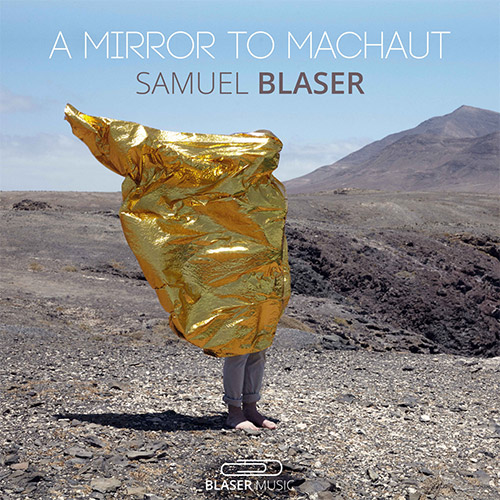






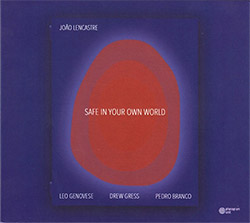


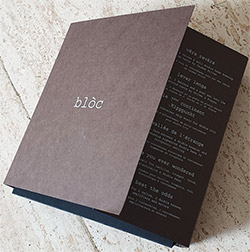

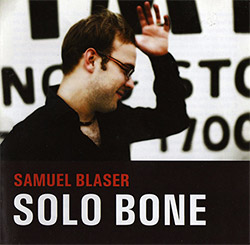

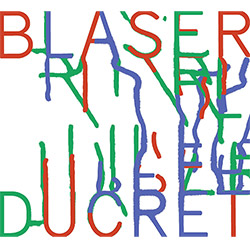
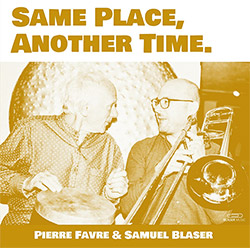

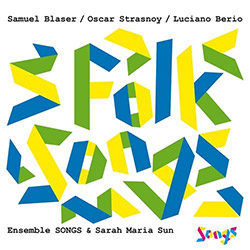

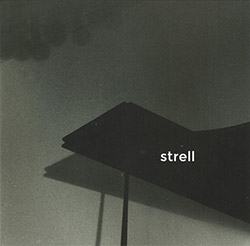
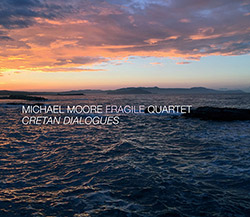
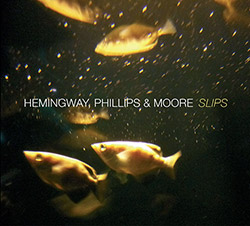
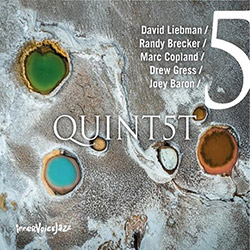
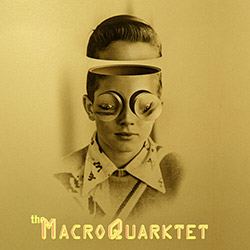


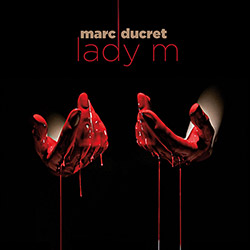




![BlueRing Improvisers: Materia [2 CDs]](https://www.teuthida.com/productImages/misc4/36513.jpg)








![Wheelhouse (Rempis / Adasiewicz / McBride): House And Home [VINYL]](https://www.teuthida.com/productImages/misc4/36462.jpg)
![+DOG+: The Light Of Our Lives [2 CDs]](https://www.teuthida.com/productImages/misc4/36009.jpg)


![Parker, Evan / Jean-Marc Foussat: Insolence [VINYL]](https://www.teuthida.com/productImages/misc4/36398.jpg)










![Deupree, Jerome / Sylvie Courvoisier / Lester St. Louis / Joe Morris: Canyon [2 CDs]](https://www.teuthida.com/productImages/misc4/36404.jpg)



![Eventless Plot | Haarvol: The Subliminal Paths [CASSETTE + DOWNLOAD]](https://www.teuthida.com/productImages/misc4/36232.jpg)










![Eventless Plot | Francesco Covarino: Methexis [CASSETTE + DOWNLOAD]](https://www.teuthida.com/productImages/misc4/36231.jpg)



![Das B (Mazen Kerbaj / Mike Majkowski / Magda Mayas / Tony Buck): Love [VINYL]](https://www.teuthida.com/productImages/misc4/36329.jpg)


![Eternities: Rides Again [CASSETTE]](https://www.teuthida.com/productImages/misc4/36247.jpg)
![Lopez, Francisco: Untitled (2021-2022) [2 CDs]](https://www.teuthida.com/productImages/misc4/36438.jpg)






![Money : Money 2 [2 CDs]](https://www.teuthida.com/productImages/misc4/35894.jpg)




![Klinga, Erik: Elusive Shimmer [VINYL]](https://www.teuthida.com/productImages/misc4/36258.jpg)
![CHANGES TO blind (Phil Zampino): Volume 9 - I Wave on a Fine Vile Mist [CD + DOWNLOAD]](https://www.teuthida.com/productImages/misc4/36061.jpg)

![Wallmart / Rubbish: Asset Protection [split CD]](https://www.teuthida.com/productImages/misc4/35900.jpg)


![+Dog+: The Family Music Book Vol. 5 [2 CDs]](https://www.teuthida.com/productImages/misc4/35897.jpg)
![Kuvveti, Deli : Kuslar Soyledi [CASSETTE w/ DOWNLOAD]](https://www.teuthida.com/productImages/misc4/36107.jpg)

![Brown, Dan / Dan Reynolds: Live At The Grange Hall [unauthorized][CASSETTE]](https://www.teuthida.com/productImages/misc4/36245.jpg)








![Palestine, Charlemagne / Seppe Gebruers: Beyondddddd The Notessssss [VINYL]](https://www.teuthida.com/productImages/misc4/36206.jpg)
![Palestine, Charlemagne / Seppe Gebruers: Beyondddddd The Notessssss [NEON GREEN VINYL]](https://www.teuthida.com/productImages/misc4/36207.jpg)

![Laubrock, Ingrid: Purposing The Air [2 CDs]](https://www.teuthida.com/productImages/misc4/35639.jpg)

![Yoko, Ono / The Great Learning Orchestra: Selected Recordings From Grapefruit [2 CDs]](https://www.teuthida.com/productImages/misc4/35841.jpg)









![Zorn, John / JACK Quartet: The Complete String Quartets [2 CDs]](https://www.teuthida.com/productImages/misc4/35609.jpg)

![Lonsdale, Eden: Dawnings [2 CDs]](https://www.teuthida.com/productImages/misc4/35480.jpg)



![Sorry For Laughing (G. Whitlow / M. Bates / Dave-Id / E. Ka-Spel): Rain Flowers [2 CDS]](https://www.teuthida.com/productImages/misc4/35985.jpg)

![Rolando, Tommaso / Andy Moor : Biscotti [CASSETTE w/ DOWNLOADS]](https://www.teuthida.com/productImages/misc4/36106.jpg)


![Electric Bird Noise / Derek Roddy: 8-10-22 [CD EP]](https://www.teuthida.com/productImages/misc4/35970.jpg)








![Elephant9 : Mythical River [VINYL]](https://www.teuthida.com/productImages/misc4/34624.jpg)



![Elephant9 with Terje Rypdal: Catching Fire [VINYL 2 LPs]](https://www.teuthida.com/productImages/misc4/35355.jpg)
![Deerlady (Obomsawin, Mali / Magdalena Abrego): Greatest Hits [VINYL]](https://www.teuthida.com/productImages/misc4/34876.jpg)







![Surplus 1980: Illusion of Consistency [CD]](https://www.teuthida.com/productImages/misc4/35069.jpg)
![Staiano, Moe: Away Towards the Light [VINYL + DOWNLOAD]](https://www.teuthida.com/productImages/misc4/35037.jpg)
![Coley, Byron: Dating Tips for Touring Bands [VINYL]](https://www.teuthida.com/productImages/misc4/17906.jpg)

![Lost Kisses: My Life is Sad & Funny [DVD]](https://www.teuthida.com/productImages/misc4/lostKissesDVD.jpg)